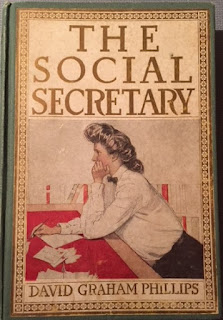(I'd posted this on Facebook, and I've migrated it here for something a bit more permanent.)
Some thoughts on the two most celebrated (as far as I can tell) episodes of BLACK MIRROR ("San Junipero" and "U.S.S. Callister"). First thing is -- yes, I enjoyed them both, especially "U.S.S. Callister". But, I have some quibbles wtih the reactions I've seen to both, in one case on moral grounds, in the other simply a feeling that the story is a bit overpraised... I'll expand after some
SPOILER SPACE ...
.
.
.
.
.
.
.
.
.
.
.
.
.
Ok, "U.S.S. Callister". As those who have seen it know, the episode is about a creepy technology officer for a company that has created a really impressive virtual game space. He -- who has been cheated by his partner, and who is a useless loser with women -- has created a private version of the game space, modelling it on a show obviously based on STAR TREK, and he has created versions of a number of his fellow workers (using their DNA via some unconvincing magic tech) and imprisoned them in that game space eternally. The women are creepily "enhanced" for, apparently, his sexual excitement (though no one has genitals -- his hangups obviously include fear of actual sex), the men are humiliated, any of them are changed into monsters if they cross certain lines.
OK, so far so good. This guy is pretty creepy (though his worst "real life" sin seems to be that he is "too starey" at times), and what he has done to the virtual copies of his co-workers -- "copies" which are conscious and feeling and, and which change based on their "virtual"experiences -- is horrible, and deserves punishment. And, a punishment is devised -- his virtual copy is enslaved in some sort of isolated bubble universe, while (most of the) rest of the crew is freed to the open network, on a version of the starship that might be able to do real cool stuff.
What's the problem? Well, the real life version of the bad guy, as far as I can tell, is essentially murdered. (He's stuck linked into the game space, can't get out, and so will die of thirst/starvation in a little while.) And nobody seems to care. What he needs is some psychological treatment. Murder seems a long step too far.
That moral objection aside -- and I should note that the episode itself doesn't necessarily endorse his murder -- viewers, I think, are supposed to notice what's been done, and check their own reactions.-- the whole thing is very well done, and the final jump into a virtual space that seems like a fun and expansive universe is pretty cool.
Now, "San Junipero". The title space, which strongly resembles Santa Cruz (as hinted by the movie poster for LOST BOYS in the opening scene) is actually a virtual space, where people can visit for a few hours a week; and where people who are dying can upload themselves and presumably live forever. That's a fine idea, but it's a VERY OLD idea, treated in too many SF stories to enumerate. There are obvious issues to consider, and they've been considered, again and again. In this episode, the central story is about two people, a Lesbian woman who we eventually learn has been confined to a hospital bed for decades after she became paralyzed in an accident resulting partly from her parents' terrible reaction to her coming out; and a bisexual woman who had had a long happy marriage to a man who had objections to "passing over" -- being uploaded in San Junipero. This woman -- Kelly -- resists the other woman's plea to join her in San Junipero after she -- after both of them -- die.
The thing is, the objections to uploading are given very short shrift. And San Junipero -- to my mind -- is portrayed as a very shallow place. All you can do there is go to bars, have sex, and drive cars too fast (because after all you won't die permanently if you crash). Doesn't that seem like kind of a thin life? And don't the 20 year old bodies everyone has seem kind of a cliche?
Mind you, I still liked the episode, and thought it very slickly done, very well executed. But kind of shallow.
